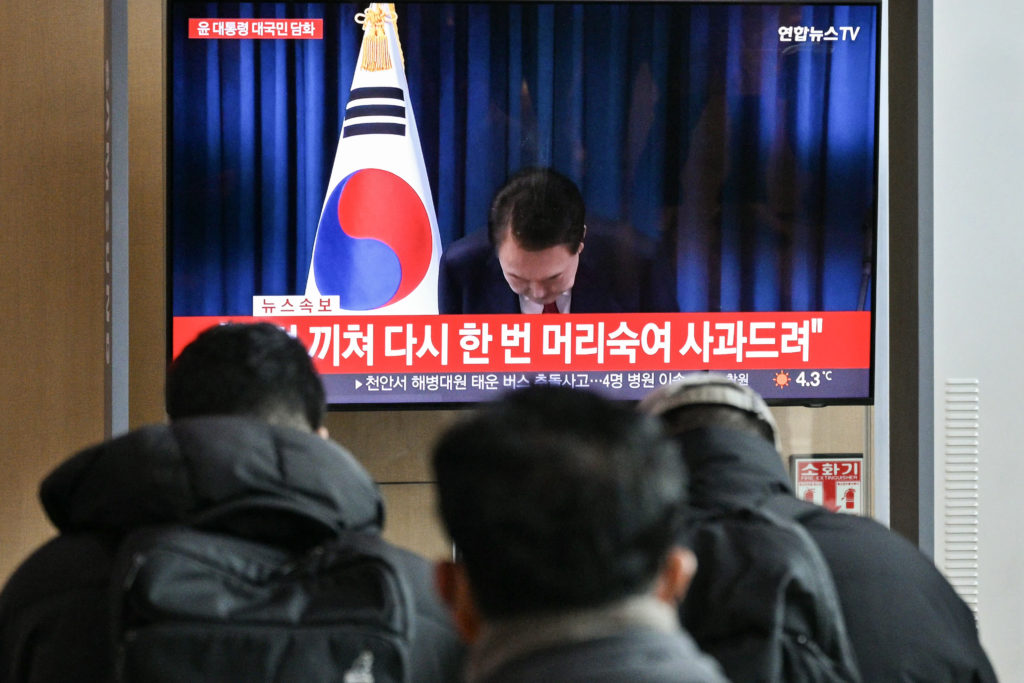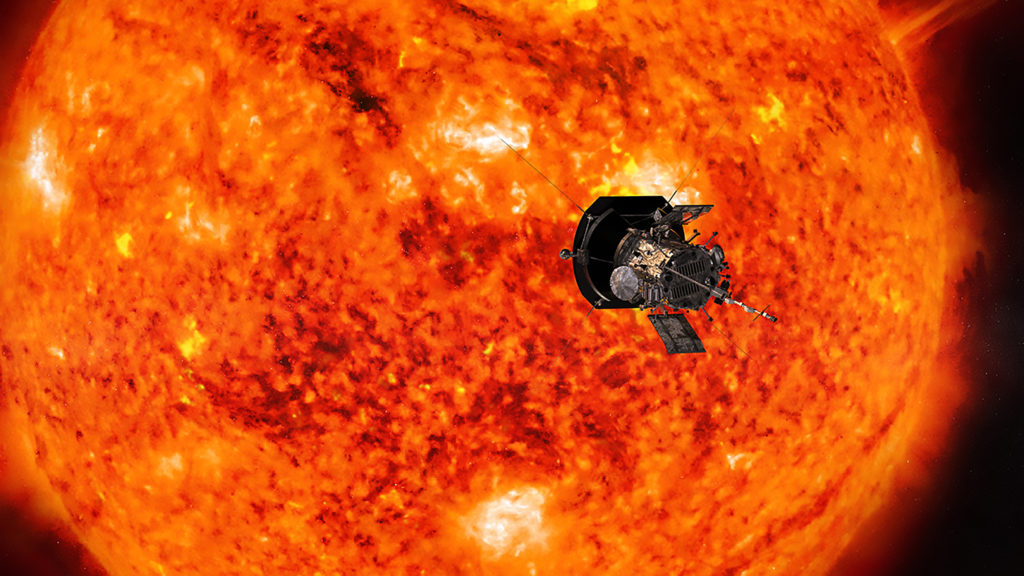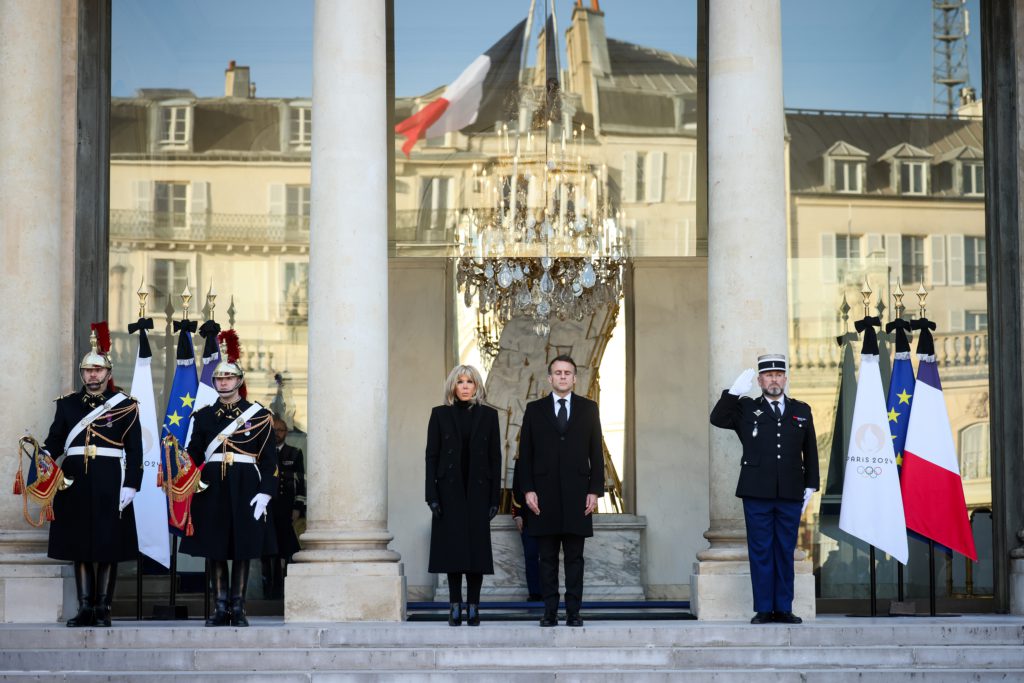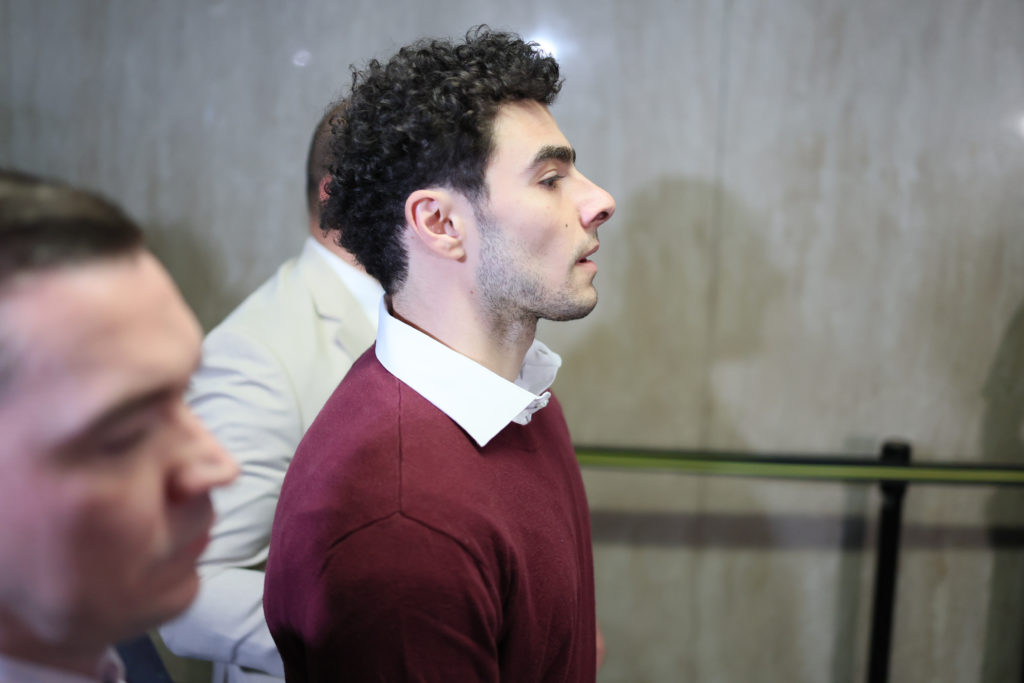South Korea’s embattled President Yoon Suk Yeol stopped short of resigning Saturday over his declaration of martial law, with a vote to impeach him hours away and mass street protests planned in Seoul.Yoon stunned the nation and the international community Tuesday night by imposing martial law for the first time since the 1980s and deploying troops and helicopters to parliament.But lawmakers managed to vote down the decree, forcing Yoon to rescind the order in the early hours of Wednesday in a night of extraordinary drama for a country assumed to be a stable democracy.”The declaration of martial law arose from my urgency as the president,” he said in a televised address, the first time he has appeared before the public since plunging the country into political chaos. “However, in the process, I caused anxiety and inconvenience to the public. I sincerely apologize to the citizens who were greatly distressed.”The opposition and even key members of his own party have called for him to step down, and parliament is set to vote later Saturday on his impeachment, although the opposition leader has told AFP it is not clear the motion can pass.Police have said they expect tens of thousands of anti-Yoon protestors to take to the streets ahead of the vote, with organisers hoping 200,000 people will attend.Yoon did not offer to resign in his brief address, saying only that he would “entrust the party with measures to stabilise the political situation, including my term in office.”His party is divided on the issue, with lawmakers late Friday sticking to the official line that they would block impeachment, even after party head Han Dong-hoon said Yoon must go or Seoul risked more political chaos.”The normal performance of the president’s duties is impossible under the (current) circumstances, and an early resignation of the president is inevitable,” Han Dong-hoon told reporters early Saturday.The opposition bloc holds 192 seats in the 300-strong parliament, while Yoon’s People Power Party (PPP) has 108.Just eight ruling party lawmakers need to defect for the vote to get the two-thirds majority it needs to pass. One PPP lawmaker has already publicly said they will vote with the opposition.A successful vote would suspend Yoon from office pending a ruling by the Constitutional Court.Police have begun investigating Yoon and others for alleged insurrection.”I will not shy away from the issue of legal and political responsibility regarding the declaration of martial law,” Yoon said during his address.On Friday night, at least 15,000 anti-Yoon protesters braved the cold weather to gather in Seoul’s Yeouido district, where the National Assembly is located. Some camped out all night despite freezing temperatures while opposition MPs remained in parliament, fearing Yoon might try some desperate measure to remain in office.An opinion poll released Friday put backing for the 63-year-old president at a record low of 13 percent.- ‘Anti-state elements’ -In his address to the nation late Tuesday, Yoon said martial law would “safeguard a liberal South Korea from the threats posed by North Korea’s communist forces and eliminate anti-state elements plundering people’s freedom and happiness”.Security forces sealed the National Assembly, helicopters landed on the roof, and almost 300 soldiers tried to lock down the building.But as parliamentary staffers blocked the soldiers with sofas and fire extinguishers, enough MPs got inside — many climbed walls to enter — and voted down Yoon’s move.Soldiers had been ordered to detain key politicians, lawmakers from both parties have said, with one top soldier involved saying this week they’d been told to “drag out” lawmakers from parliament.The episode brought back painful memories of South Korea’s autocratic past and blindsided its allies, with the US administration only finding out via television.US Secretary of State Antony Blinken told his Korean counterpart Cho Tae-yul on Friday that he “expects the… democratic process to prevail”.burs-stu/ceb/cwl
Sat, 07 Dec 2024 01:38:14 GMT










